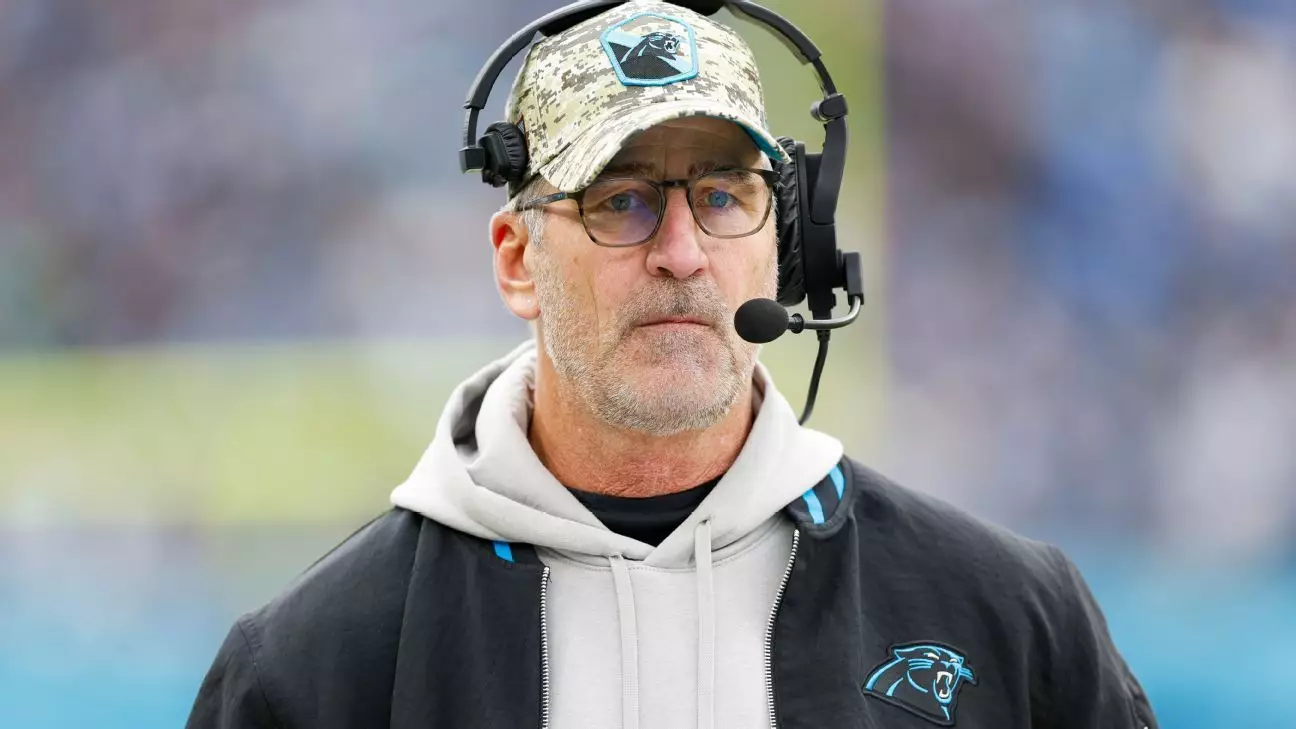In an unexpected twist, Stanford University has appointed Frank Reich, a seasoned NFL coach, as its interim football coach for the 2025 season. This announcement, made on Monday, marks a crucial pivot point for a program desperately in need of revitalization. With a one-season agreement in place, Stanford is set to embark on a national search for a permanent head coach following the tumultuous termination of Troy Taylor. Reich’s hiring brings a blend of experience and a fresh perspective, yet the circumstances surrounding this transition raise questions as to whether Stanford can truly bounce back from the shadows of past controversies.
The Dark Legacy of Troy Taylor
The decision to fire Troy Taylor reverberates through Stanford’s athletic and academic community, unveiling troubling allegations of bullying and inappropriate behavior towards female staff members. Such misconduct not only reflects poorly on Taylor’s leadership but also casts a long shadow over the program. While Taylor’s dismissal was necessary, one must ponder what systemic issues allowed an environment conducive to such behavior to develop in the first place. Stanford prides itself on its values of integrity and respect; however, the football program appeared to have strayed far from these principles.
As Reich steps into this interim role, he does so under the weight of a tarnished legacy, with the challenge of restoring trust among players, staff, and fans alike. The urgency of being a role model for student-athletes in all aspects of their lives calls for more than just tactical expertise—it requires an unwavering commitment to ethical comportment and personal growth.
Is Experience Enough? The Quandary of Past Failures
Reich arrives at Stanford following a turbulent coaching stint with the Carolina Panthers, having been dismissed after a dismal 1-10 start in the 2023 season, which followed a similar firing from the Indianapolis Colts. Some critics may question the wisdom behind appointing a coach who has faced the same challenges of failure and disappointment. After all, how can someone who has struggled in recent years inspire a team seeking to rekindle its competitive edge?
Nevertheless, Reich carries with him a wealth of experience and success that could transcend his recent setbacks. He possesses a proven ability to nurture talent and develop quarterbacks—a critical attribute for a Stanford team that has not seen a winning season since 2020. Whether that experience translates into immediate success on the field remains to be seen, adding an air of uncertainty to his interim position.
A Managing Mentor: The Role of Andrew Luck
Integral to Reich’s success will be the influence of Andrew Luck, Stanford’s football general manager, and former Cardinal quarterback. Luck’s vision for the program has been touted as ambitious, but it remains to be evaluated whether such aspirations can materialize into tangible results. He champions the alignment of coaching values with the overarching mission of the university, arguing that Reich embodies those ideals.
However, one cannot ignore the complexity of managing a diverse team of student-athletes, particularly when the program is at a crossroads. Reich must navigate expectations, foster a cohesive team culture, and grapple with the loss of star players like David Bailey, who recently entered the NCAA transfer portal. These are not merely logistical challenges; they are profound tests of Reich’s leadership acumen and emotional intelligence.
The Path Forward: Building a Foundation for Renewal
While the future is fraught with uncertainties, the opportunity for rejuvenation lies in the collective effort of players, coaching staff, and university administrators. Reich’s statement about embracing the responsibility to mentor the best talent speaks volumes about his intent. Yet, true progress will be forged through action rather than platitudes. Real change requires a deep-seated commitment to fostering an inclusive and supportive atmosphere, one where athletes can thrive not just as competitors but as individuals.
Stanford’s football program is at a critical juncture, and the decision to harness Reich’s capabilities could either catalyze transformative development or serve as another fleeting chapter in a series of disheartening seasons. As students and alumni alike observe this transition with keen interest, the call for resilience and responsibility resonates far beyond the football field. It embodies the essence of what it means to be a Stanford Cardinal, tasked with aspiring not solely for victories but for a legacy worth fostering.



Leave a Reply